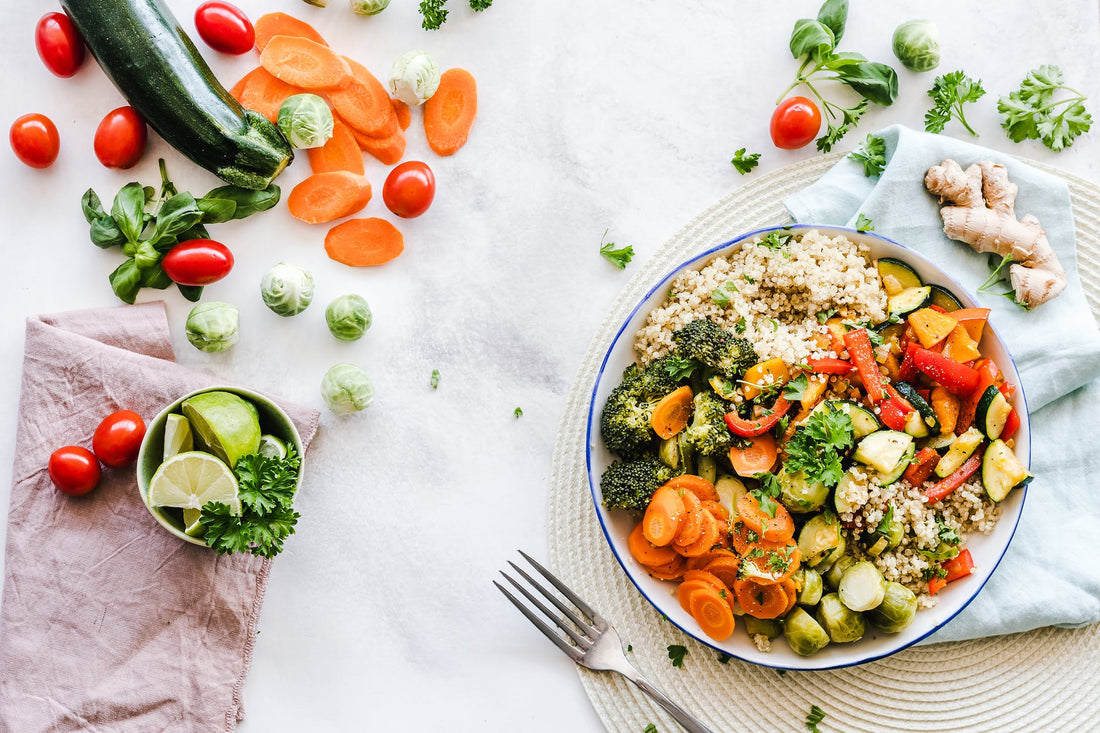Omega 3 is known for its outstanding health benefits including reduced inflammation, boosted cardiovascular health, eye health and improved cognitive function to name a few.
When people think of Omega 3, the first idea that comes to mind is oily fish such as salmon, sardines and anchovies. However, this all-important nutrient actually comes from algae, which is what fish eat to obtain Omega 3. It’s totally mind-blowing, we know!
There’s plenty of plant-based Omega-3-rich foods out there, meaning alongside taking our algae-based Omega 3 supplement, you can still hugely benefit from this powerhouse nutrient even if you don’t consume fish.
Here are the top 10 plant-based foods high in Omega 3 that we recommend including in your diet.
Brussels Sprouts
Alongside Omega 3, brussel sprouts have a high content of Vitamin K, Vitamin C and fibre, making them a powerful nutrient that’s not just for Christmas.
When cooked well, brussels sprouts are not only nutrient dense but also absolutely delicious. Rather than just boiling them, try roasting or frying these little balls of green goodness and you’ll really be able to taste the difference.

Hemp Seeds
Considering their size, the nutrients packed inside hemp seeds is pretty impressive. They contain around 30% of oil and a good amount of Omega 3, protein, magnesium, zinc and iron.
You can either add them on top of yoghurt, cereal, salads or smoothies or use the oil which is made by pressing the hemp seeds.
Chia Seeds
As well as being a superb source of Omega 3 and fibre, chia seeds are high in protein which makes them an ideal substitute for eggs among those following plant-based diets.
Try soaking them overnight and adding coconut milk and berries to make a mouth-watering pudding - it goes down a treat. Or, simply sprinkle them over yoghurts, salads or smoothies for an extra health boost.
Chia seeds don’t have much flavour, so you don’t need to worry about them changing the taste of anything.
Walnuts
Containing 65% fat by weight, walnuts are full of healthy fats. They’re praised particularly for their brain-boosting benefits, including for our memory, concentration and how fast we process information. In fact, they even look like a brain! Nature never fails to be amazing.
You can add walnuts to your granola or sprinkle chopped pieces into your yoghurt or salad. Or, you can simply grab a handful and snack on them throughout your day.

Flaxseeds
Sometimes also referred to as linseeds, flaxseeds are slightly larger than chia seeds and have a nutty flavour. As with chia seeds, they can either be soaked overnight or sprinkled over the likes of cereal, soup and casseroles, or just enjoyed as they are.
Perilla Oil
You may not have heard of Perilla oil before, but it’s becoming more and more popular.
Derived from perilla seeds, it’s often used in Korean cooking and is a great source of Omega 3 if you follow a plant-based diet. Perilla oil can also be used as a dressing rather than an oil to be heated and cooked with.
Edamame
Buttery and nutty in taste, edamame beans are tasty to snack on and can be easily added to dips and your favourite meals such as stir-fries, wraps, plant-based sushi and salads.
Wild Rice
Wild rice is packed full of nutrients including Omega 3 as well as protein, fibre, B vitamins, zinc and magnesium, making it a fantastic health-giving food to add to your diet.
Seaweed
Now for a familiar favourite of ours: seaweed! Seaweed is a type of algae, making it a well-known source of Omega 3.
It can easily be incorporated into your diet such as through plant-based sushi or miso soup, or you can buy seaweed in strips to snack on. You can also get seaweed in powder form to add to your favourite green smoothies.
Kidney Beans
Kidney beans are a very versatile food and a clever way of sneaking in some more Omega 3 into your diet. Try adding them to salads for a tasty addition to your healthy plant-based eating plan!

